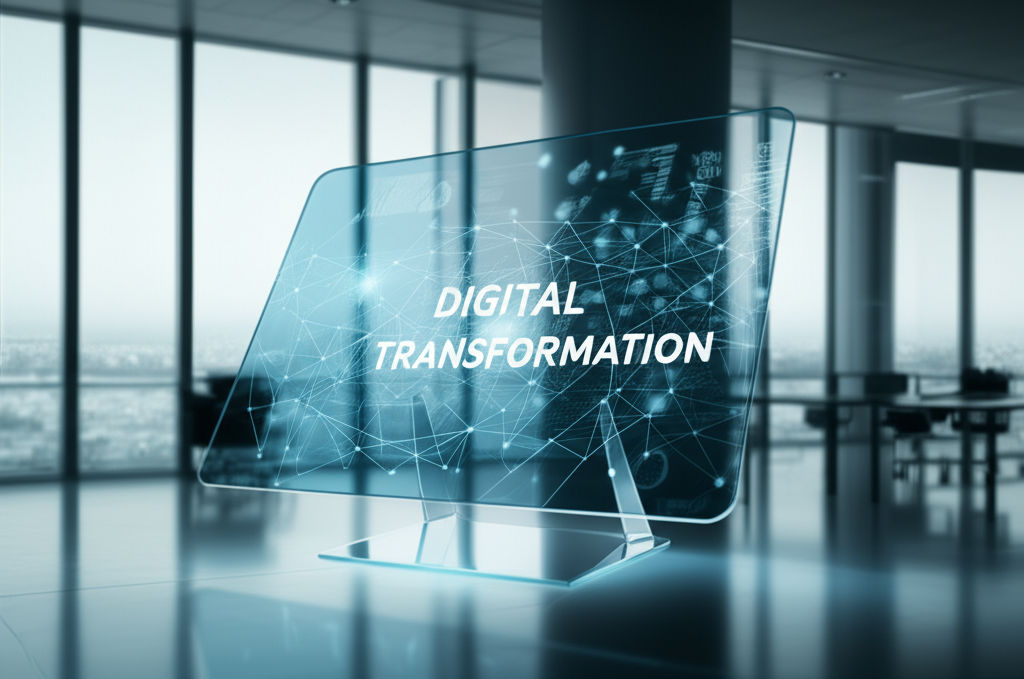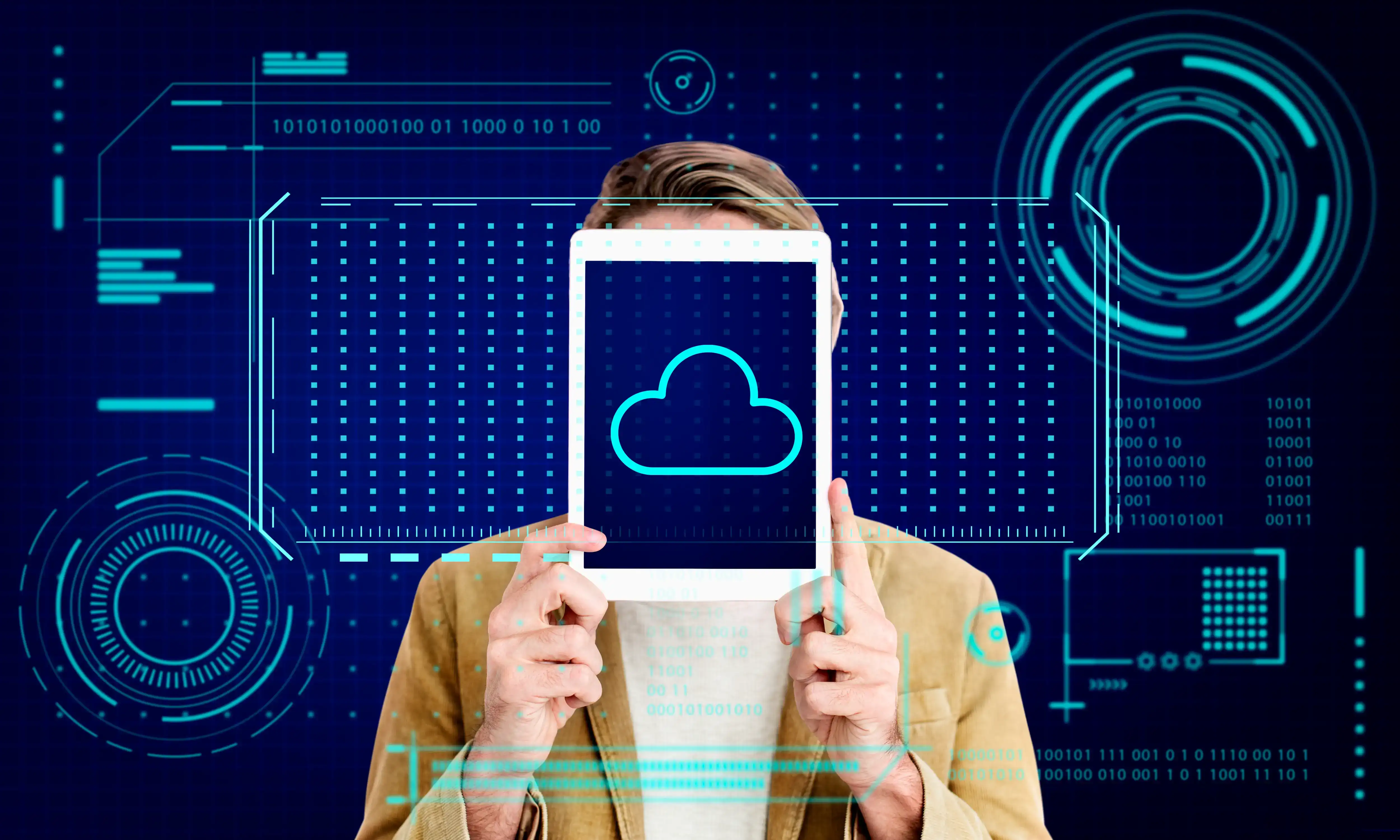Digital Transformation: What's Next?
Emily Willis

Photo: Digital Transformation: What's Next?
Digital Transformation: What's Next? Navigating the Future of Business
Digital transformation (DT) is no longer a buzzword or a future aspiration; it's a continuous, evolving journey that redefines how businesses operate, interact with customers, and deliver value in a rapidly changing world. In 2024, digital transformation spending reached $2.5 trillion and is projected to hit $3.9 trillion by 2027, underscoring its essential role for business success. This comprehensive integration of digital technologies into all areas of a business fundamentally changes its operations and value delivery. But as technology accelerates at an unprecedented pace, the critical question for leaders, employees, and consumers alike is: What's Next?
This article delves into the evolving landscape of digital transformation, exploring the forces driving its next wave, the pivotal role of people and culture, the emerging technologies on the horizon, and actionable strategies for businesses to thrive in this dynamic environment.
The Evolution of Digital Transformation: A Quick Look Back
To understand "what's next," it's helpful to briefly reflect on where digital transformation has been. Initially, it often focused on digitizing manual processes or adopting basic digital tools to improve efficiency. This early phase saw businesses moving from paper records to digital files, establishing online presences, and automating routine tasks. The emphasis was largely on digitization (converting information from analog to digital) and digitalization (enabling processes with digital technology).
However, the COVID-19 pandemic significantly accelerated these efforts, with 97% of companies recognizing the urgency of adapting swiftly to rapidly changing circumstances. Today, digital transformation is about a holistic, strategic shift that reimagines entire business models, customer experiences, and operational frameworks. It's a continuous process, not a one-time project, requiring ongoing adaptation and innovation.
Key Drivers of the Next Wave of Digital Transformation
Several powerful forces are converging to shape the future of digital transformation, pushing businesses to evolve beyond mere technology adoption.
Shifting Customer Expectations
Modern consumers demand seamless, personalized, and immediate experiences across all channels. This expectation drives businesses to leverage data analytics and AI to understand customer behavior, anticipate needs, and tailor offerings. Companies that prioritize customer experience are more likely to achieve their digital transformation goals.
Rapid Technological Advancements
The relentless pace of innovation in areas like Artificial Intelligence (AI), Machine Learning (ML), cloud computing, and the Internet of Things (IoT) provides new capabilities and necessitates continuous adaptation. These technologies are not just tools but catalysts for entirely new business models and operational efficiencies.
Global Economic and Societal Changes
Events like global pandemics, supply chain disruptions, and the rise of remote and hybrid work models have underscored the need for organizational resilience, flexibility, and agility. Digital transformation provides the infrastructure and processes to respond quickly to unforeseen challenges and maintain business continuity.
The Imperative for Data-Driven Decision Making
Data is the "lifeblood" of modern business, but its true potential is unlocked through smart data analytics. Organizations are increasingly relying on AI and advanced analytics to sift through vast amounts of data, identify patterns, generate predictive insights, and make more informed, faster decisions.
Beyond Technology: The People and Culture Imperative
While technology is the enabler, the human element—people and culture—is the true backbone of successful digital transformation. Many organizations mistakenly believe that digital transformation is solely about adopting the latest technology, yet studies show that a high percentage of digital transformation efforts fail, often due to cultural resistance and a lack of focus beyond the technical aspects.
The Role of Culture
A culture that fosters digital transformation encourages employees to think creatively, experiment with new ideas, and embrace continuous learning. It's about cultivating a mindset open to change, valuing collaboration, and not fearing failure. Without this supportive cultural foundation, even the most advanced technologies may fail to deliver their full potential.
Key aspects of a digitally transformed culture include:
- Agility and Adaptability: The ability to quickly respond to new information or unexpected changes.
- Innovation Mindset: Encouraging creativity, problem-solving, and experimentation.
- Data Literacy: Empowering employees at all levels to understand, collect, analyze, and utilize data effectively.
- Collaboration and Communication: Breaking down silos and promoting transparent, data-driven communication across departments.
- Leadership Commitment: Leaders must not only articulate a clear vision but also embody the values and behaviors they wish to instill, demonstrating a willingness to experiment and learn.
The People Factor: Skills and Experience
Digital transformation impacts all aspects of work, from work styles to management, communication, learning, and development. This shift necessitates a focus on workforce transformation, including upskilling and reskilling employees to work alongside new digital systems. The World Economic Forum predicts that by 2025, 85 million jobs may be displaced by a shift in the balance between humans and machines, but 97 million new roles may emerge, better suited to this new division of labor. Companies must become "talent incubators" to address the digital talent skills gap.
Emerging Technologies Shaping the Future of Digital Transformation
The next wave of digital transformation will be heavily influenced by the maturation and deeper integration of several cutting-edge technologies.
Artificial Intelligence (AI) and Machine Learning (ML)
AI is a powerful accelerator of digital transformation, impacting nearly every industry and function. It enhances efficiency, automates complex tasks, and improves decision-making.
- Automation: AI-powered tools like Robotic Process Automation (RPA) are transforming repetitive manual tasks into efficient processes, reducing costs and human error. Hyperautomation, which combines AI, RPA, and analytics, will be a major trend.
- Enhanced Customer Experience: AI enables hyper-personalization, from product recommendations to automated customer support chatbots.
- Data Analytics and Insights: AI sifts through vast amounts of data, identifies patterns, and generates predictive insights, allowing for more informed decision-making.
- Generative AI: This specific branch of AI is transforming content creation, product design, and even code generation, streamlining IT processes.
Cloud-First and Multi-Cloud Architectures
Cloud computing provides scalable and flexible infrastructure, enabling cost-effective digital solutions and accelerating digital transformation. A multi-cloud strategy, utilizing services from various cloud providers, offers greater flexibility, resilience, and avoids vendor lock-in.
Internet of Things (IoT) and Digital Twins
IoT involves interconnected digital systems that collect and exchange data, providing real-time insights for optimized operational processes. Digital Twins, virtual replicas of physical objects or systems, integrate IoT data to simulate, monitor, and optimize performance in real-time, finding applications in manufacturing and smart infrastructure.
Enhanced Cybersecurity
As digital transformation expands the attack surface, cybersecurity becomes even more critical. The future will see a continued emphasis on "Zero Trust" security models and the integration of AI for proactive threat detection, rapid response, and adaptive security measures.
Spatial Computing (AR/VR/Metaverse)
Technologies like Augmented Reality (AR) and Virtual Reality (VR) are creating immersive experiences that blend digital content with the physical environment. These can enhance training, design, customer experiences, and even revolutionize fields like healthcare. While still nascent, the broader concept of the metaverse could eventually reshape how we work, learn, and socialize in digital spaces.
Navigating the Challenges: What to Expect
Despite the immense potential, digital transformation is fraught with challenges, with a significant percentage of initiatives failing or not achieving their full potential.
Common hurdles include:
- Resistance to Change: Employees and even leadership may be comfortable with existing processes and fear the unknown.
- Lack of Clear Strategy and Vision: Without a lucid plan, digital transformation can become chaotic, leading to duplicated efforts and missed opportunities.
- Skills Gap: A shortage of skilled professionals in areas like cybersecurity, data analytics, and AI can hinder implementation.
- Legacy Systems: Outdated infrastructure can create roadblocks, making integration with new technologies difficult and posing security risks.
- Budget Constraints: Digital transformation requires significant, ongoing investment, and underfunding can impede proper implementation.
- Data Management and Security Concerns: Ensuring data protection, compliance, and effective utilization of vast data volumes is complex.
Actionable Steps for Businesses: Preparing for What's Next
To succeed in the next phase of digital transformation, businesses must adopt a strategic, holistic, and human-centric approach.
- Develop a Clear, Agile Digital Strategy: Define specific objectives that align with overall business goals. This strategy should
Latest ✨
View AllUncover the bond market's true nature. Is it a safe haven? Learn its benefits, inherent risks, and how to confidently integrate bonds into your portfolio.
Emily Willis
Discover the innovation economy: how new ideas, tech, and business models drive global growth and define future success.
Emily Willis
sustainable travel and highlights three destinations - Costa Rica, Iceland, and New Zealand - where eco-conscious adventures are prioritized. It describes the eco-friendly activities and responsible tourism practices in each destination, as well as providing additional tips for sustainable travel such as packing light, choosing eco-friendly transportation, and embracing local cuisine.
Emily Willis
Blockchain technology, initially associated with cryptocurrencies, has expanded to have diverse applications across industries. It is a decentralized digital ledger that ensures secure, transparent, and immutable transactions. Beyond cryptocurrency, blockchain has been applied to supply chain management, healthcare, voting systems, smart contracts, digital identity verification, real estate transactions, and supply chain finance. Future trends include enhancing interoperability, addressing scalability issues, and exploring regulatory frameworks. Overall, blockchain technology has the potential to revolutionize various sectors by enhancing efficiency, security, and trust in operations.
Emily Willis
Business
View All
June 8, 2025
Top Sales Techniques to MasterTransform your sales approach. Discover top modern sales techniques, including consultative selling, to connect, persuade, and build lasting customer relationsh...
Emily Willis

June 8, 2025
Scale Your Business SmartlyScale your business smartly for sustainable growth. Learn strategies to increase revenue efficiently, avoid common pitfalls, and build a robust enterprise.
Emily Willis

June 9, 2025
Budgeting Tips for Business ExpensesMaster your business finances! Discover essential budgeting tips to control expenses, improve cash flow, and drive sustainable growth for your enterprise.
Emily Willis
Economy
View AllIn today's rapidly changing economic landscape, innovation and resilience are more important than ever. Innovation drives progress and competitiveness by creating new ideas and solutions to meet market needs. Resilience helps businesses withstand shocks and bounce back from setbacks by planning strategically and diversifying resources.
Read MoreIs globalization reversing? Unpack key economic trends, trade protectionism, and the shift to "slowbalization" shaping our interconnected world.
Read MoreDive into the economics of monopolies. Learn how these single-rule markets form, their characteristics, and their impact on prices, quality, and growth.
Read MoreEntertainment
View All
August 4, 2024
Profiles of Famous Artists Who Inspire the Younger Generationthe inspirational aspects of famous artists such as Vincent van Gogh, Frida Kahlo, Pablo Picasso, Banksy, Yayoi Kusama, Jean-Michel Basquiat, Georgia O'Keeffe, Andy Warhol, Kehinde Wiley, and Ai Weiwei. It highlights their perseverance, innovation, authenticity, social commentary, mental health advocacy, and representation, among other qualities, and how these aspects continue to inspire young artists to pursue their creative dreams.
Emily Willis

August 4, 2024
The Evolution of Streaming Services Such as Netflix, Disney+, Hulu, and the Implications for the Traditional Entertainment IndustryThe rise of streaming services has revolutionized the entertainment industry, offering on-demand access to a vast library of content through internet-connected devices. Platforms like Netflix, Disney+, and Hulu have diversified their content libraries, reshaped consumer behavior, and challenged traditional distribution models. Technological advancements have enhanced streaming experiences, while economic and cultural implications have led to global market expansion and increased investment in original content production. The future of the streaming industry will be shaped by competition, convergence of media and technology, and the need for adaptation to changing consumer preferences. Embracing digital transformation and strategic partnerships will be crucial for stakeholders in navigating the evolving landscape of modern entertainment.
Emily Willis

August 4, 2024
The Evolution of Digital Distribution in the Music Industry: Challenges and OpportunitiesThe music industry has been transformed by digital distribution, which allows quick access to a vast catalog of music through streaming services and online stores.
Emily Willis
Health
View AllPreventive healthcare focuses on strategies to prevent disease and maintain well-being, rather than just treating illnesses after they arise. It helps identify risk factors early on, allowing for interventions that can prevent or delay the onset of chronic diseases.
Emily Willis
The healthcare landscape is being transformed by technological advancements, with telehealth and remote care providing convenient access to healthcare services. Artificial intelligence is revolutionizing diagnostics, personalized medicine, and drug discovery. Wearable technology is empowering patients to take control of their health.
Emily Willis
The focus of nutrition advice is shifting towards personalized nutrition, taking into account individual genetic makeup, lifestyle, and health goals to create a customized eating plan. This approach can lead to improved health outcomes, enhanced nutrient absorption, increased motivation, and targeted support for specific health concerns.
Emily Willis
Trending 🔥
View All
1
2
3
4
5
7
8
9
10
Sports
View AllAugust 5, 2024
Celebrating Sports Legends: Honoring Iconic Figures and Their Enduring Impact
Read MoreAugust 4, 2024
Benefits of Cross Training for Athletes: Improves Performance and Prevents Injuries
Read MoreTechnology
View All
August 5, 2024
Tips for Implementing Cloud Computing Safely and Efficiently
Cloud computing is essential for modern businesses, offering cost savings, scalability, and improved collaboration. Implementing cloud computing requires careful planning to ensure safety and efficiency. Tips for safe and efficient implementation include conducting a needs assessment, choosing the right cloud service model, prioritizing security, planning for data migration, optimizing costs, training your team, implementing backup and recovery solutions, monitoring performance, planning for scalability, and staying updated with industry trends.

August 4, 2024
Role of Cloud Computing Technology in Modern Business
Cloud computing technology has become essential for modern businesses, offering cost efficiency, scalability, and flexibility. It enables streamlined processes, enhanced productivity, and improved collaboration among employees. Cloud computing also ensures data security, disaster recovery, and business continuity. By migrating to the cloud, businesses can streamline IT operations, enhance customer experiences, access advanced technologies, and reach a global audience. Real-world applications of cloud computing include e-commerce, healthcare, financial services, manufacturing, and education.

August 5, 2024
The Most Common Types of Cybersecurity Threats
In today's digital age, cybersecurity threats are increasing in sophistication and frequency. It is important for businesses and individuals to be aware of these threats in order to protect sensitive information and maintain privacy. Understanding common types of cybersecurity threats is the first step in safeguarding against them.

August 4, 2024
Data Security in the Digital Era: Challenges and Solutions
importance of data security in the digital age, highlighting challenges such as cyberattacks, human error, weak passwords, and outdated systems. It also provides solutions to enhance data security, including encryption, strong password policies, multi-factor authentication, regular software updates, employee training, access controls, data backup, incident response plans, security audits, and advanced security technologies. These measures are essential for protecting sensitive information and preventing unauthorized access and breaches.




















